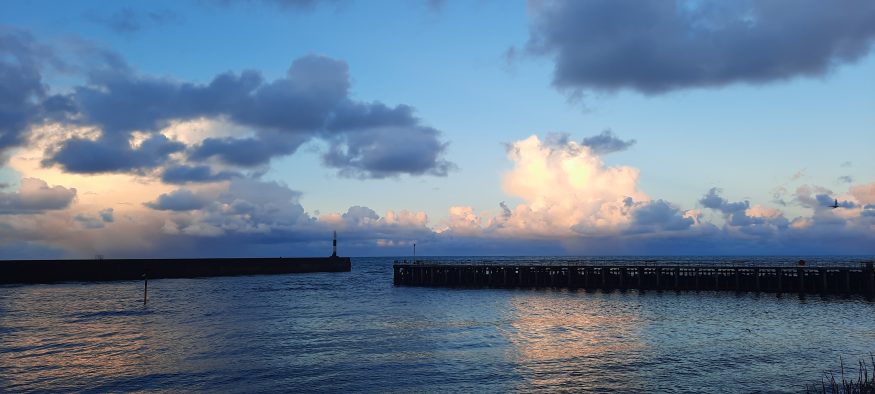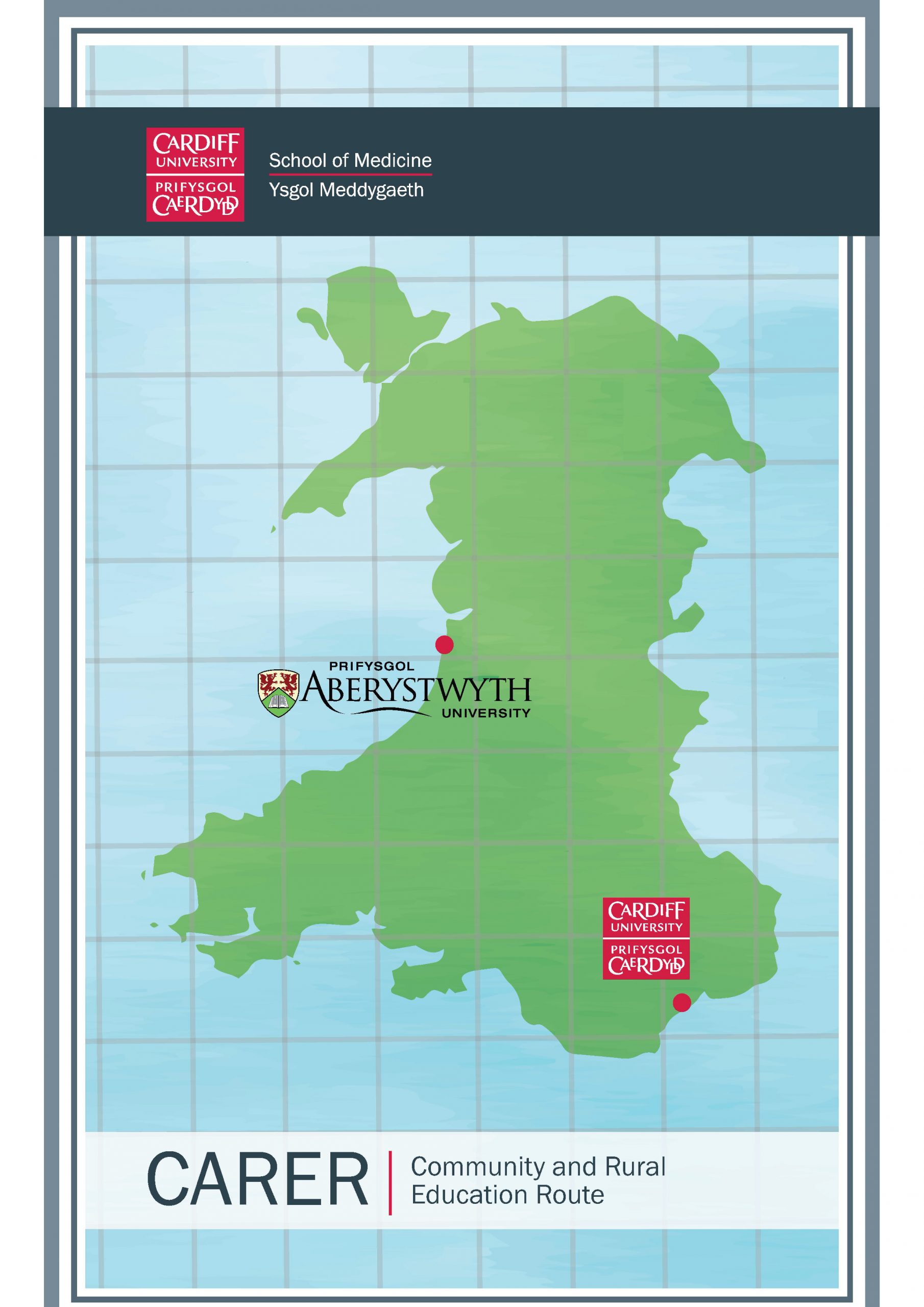Student, Teacher, CARER
26 July 2023

Four years ago to the day I was probably writing for this same blog. At that time I was 22 years old and I was nearing the end of the academic year in July. I was a third year medical student, and I’d done about eight months of clinical placement: seven in G.P. and one month in hospital. I lived in the outskirts of Aberystwyth with other medical students also in general practice, and Spring was in full swing all around me in the wonderfully verdant countryside.
I’ve re-read the articles I posted here during that year in 2018 and 2019, and also the summary article I wrote in 2020. As I say, the earliest of those were four or five years ago. I have re-read them in the hope that, to some extent, I’d be able to walk once again in the shoes of the person I was at that time. I also hoped it’d help me remember the feelings and the thoughts I had back then, some of which might have changed in my own memories in the intervening years. I’ve also read all the other articles posted over the years from the Aberyswyth arm of CARER, now spanning a few years and plenty of individuals. This was because those other stories have common ground with mine, and while we all use different words and tell different tales, they all revolve around a remarkably consistent experience.
In a final piece of writing from me to go up on the CARER blog I wanted to make final reflections on that year. However, I make them in a very different position now. No longer am I a fellow student to any who might be reading these words. I graduated from Cardiff in 2021, I received my medical qualification, and duly I began to be approached by family members at get-togethers and by health-anxious relatives at weddings – because now I was a doctor, and it was official, and well, what did I think that lump on their neck was?
I spent 2021 and 2022 in FY1 rotations in Cardiff, in the Heath and in Llandough. Then I chose to return to Aberystywth to complete the FY2. I’ve worked in T&O; Endocrinology; Vascular; Orthopaedics (again); A&E; and Paediatrics. In that time I’ve earned money (finally, is the universal feeling); I’ve cried because of work (and that’s ok, is what me and my colleagues told each other); I’ve watched my own parents have health problems of their own, watched a grandparent continue to lose her independence; I’ve become more self assured, I’ve become more assertive, and I’ve probably become more cruel and less empathic (there are good data on this as a common experience in junior trainees, I’m not talking with proof about myself, it’s a general comment, but hey, maybe I specifically really have become much less empathic, who knows?). I’ve forgotten a lot of my training, and I’ve had some of my training hammered so deep into my bones that it might be some of the last information I ever forget.
Just as in my previous year in Aberystwyth, the area has completely charmed me. More than ever I am aware of the amazing strengths it possesses. These are various, and so numerous that I will now manage to bore 100% of whoever’s been foolish enough to read this far. And, I hesitate to add, few of the strengths will be exclusive to Aberystwyth, and none of them are guaranteed to be perceived by others who work here. I hope I’m not a starry-eyed or delusional representative of the area, or my own experience.
There is the landscape: a landscape which when I first saw it on a clear day in September 2018 seemed to showcase the arms of coastline to the north and south stretching out far, far into the sea; a landscape full of old woodland, gentle narrow green valleys, harsh and exposed cliffs, rich rolling rivers and burbling streams, moss-covered walks and bleak mounds of slate. There are patches of forestry pine but these are interspersed with ancient oaks, beech, ash, willow, gorse, heather, bluebells and snowdrops, daffodils and wildflowers. They surround woodpeckers, owls, squirrels and rabbits and hares and foxes and swifts and swallows and kites and ospreys; and of course in the fields there are new lambs, old ewes, cows and calves, mares and foals and farming sheepdogs.
There are also the people: and these are unique to Aberystwyth, because they are completely attached to Aberystwyth. They don’t want to transfer to the bigger, shinier hospitals for their operation or for life saving treatment. Most have lived here for years, some for generations. Some of them are so tough they laughed in my face when I raised the subject of pain relief for their broken bones. They are dairy farmers, they are sheep farmers, they are craftsmen, carpenters, brewers, pub owners, forestry officers, teachers, cleaners, policemen, secretaries, lecturers, professors, students, cooks. They frequently bump into a neighbour or a friend or a relative whilst in the four walls of the hospital – whether it is the hospital porter, the nurse treating them or the A&E consultant. They gossip about each other’s children and parents, and they gossip about whatever else they have in common. I’ve been teased for being English, partly because being English is a tolerated crime when living in Wales and partly I suspect for the flaw of not being from Ceredigion more specifically.
Anyway.
My point (if there’s a point in there) is that I was once a student, and in Aberystwyth; and I’m now a doctor, and once again I’ve been in Aberystwyth.
What’s it like on the other side?
And, interestingly, what’s it like putting new students under the looking glass?
Because, channelling my inner sensei, to some (rather limited) extent the student has become the master. Throughout this year I have taught the current third year medical students – the current CARERs, the fifth iteration of them. My former tutor, Dr Sue Fish, will have had to adjust to the bizarre fact that the hopeless case called Ed that she taught at the start of all this reappeared in July 2022 asking her if she thought there was a role for a ‘graduate’ of CARER in this year’s teaching. I inhabit two roles in CARER simultaneously, that of the student and that of the teacher. That is why I re-read the other articles here: to make sure I have one foot in each camp, to make sure I speak to the students who will read this with an attempt at balance.
What do students feel during their year here?
At first, they are nearly overwhelmed – they are, whelmed? They’re given so many things to do that they will spend months subconsciously working their way through it, and it will be months until they feel familiar with all the new things they’ve had to learn and all the new ways of thinking they’ve had to accommodate. Separate from most of their peers in university, they are being asked to learn the ropes of general practice, settle into a small town, keep up with studies for all the same exams as everyone else but see an order of magnitude more patients – patients with conditions they’ve never heard of, on treatments they’ve never heard of, complaining of symptoms they’ve never heard of. Patients with conditions they have heard of, which doesn’t help you at all when they come in worried about the bleeding that won’t stop since the weekend or the breathlessness that’s stopping them getting up the stairs without pausing to gasp or the headache that has them worried they have something seriously wrong. Perhaps the difference – apart from the sheer number of patients the CARER students see – is that it is just the student and the patient in the room, and to some extent until the GP walks in the student has responsibility in a way that does not occur on a large hospital ward round or shadowing a consultant outpatient clinic.
The CARER students talk to their friends in Cardiff, who seem to be watching really complicated operations, or having to prepare a presentation on a syndrome that has four different dead professors in its name, or on a super-specialist ward round, or in a clinic you’ve never even heard of. At that moment the CARER students risk feeling isolated or cut off, or as if they’re being treated harshly, or that they’re just missing out, plain and simple. All Cardiff students now also have quite a lot of exams to work toward – definitely more exams than I had to do, and with higher pass-marks.
However. There comes a point for the CARER students – I’ve felt it, and now I’ve seen it in others – where everything seems to… click, somehow. Not necessarily in an instant. But watching, teaching, observing – overnight, the cases seem to make more sense to the students, their management is more confident, their medical identity is more secure. And not for lack of experience: any confidence they’re building up is coming from seeing patients, seeing an endless number of patients with any number of issues. And since so many problems need checking on… those same patients come back, and who knows how they’ve been in the meantime, if they’ve taken their medication, if they’ve had a trip to hospital, if the tests have been done or the consultant review taken place, if their family is alright. Roughly speaking, this occurs from about March onwards, or five to six months in. The students know what they’re doing, they can build on what they’re seeing, they can stay afloat and do one better. In a quiet, hardworking way they are already seeing more patients than some junior doctors do – maybe even working harder!
Teaching medical students can be difficult. Often, one is given no warning; they simply appear on the ward, or in clinic, or at your side in the corridor. There’s not always a warning they’re coming – or a briefing for how long you’ll see them. Perhaps you are asked to help cover a teaching session, to fill in a gap. It goes without saying that it is an act of goodwill with no remuneration to speak of. When you meet a group of students, you have to find out what university they’re from, what year group, what they’ve already seen, what rotation they’re on… it is difficult to find out who they are and what they know. You also have to figure out where they each are in their learning. In a big enough group, there are some who are ahead, and some who are behind – not globally, but for every single topic, disease, examination, idea. Teach them too much too soon and you’ll lose them all to confusion; teach them too little and they’ll be gone to boredom.
Teaching the CARER students all year has, thankfully, been relatively straightforward; perhaps a perk of the structure of the year. It is the same group of students each week after all – it has been the entire year (although we have had some CD1 students visiting!). As they’ve gotten to know me, I’ve gotten to know them. There is a benefit I cannot state to simply knowing the other people involved. A better atmosphere; less confusion; a knowledge of how much the others there already know, or don’t know.
The students have to juggle all sorts of work, all kinds of forms, and exams, and projects – they have to prove they can do various procedures and skills – and then whilst ticking all these important boxes they have the (not so insignificant) task of learning medicine as well.
I must write now, that it has been a pleasure and a privilege to live once again in Aberystwyth; and it has been a pleasure and privilege to teach this current group of students. I wish them all the best. They are hardworking, caring, knowledgeable people and when they stick the landing they will make good doctors.
If you are a Cardiff student – a current first or second year student – and you have the chance to do CARER, please consider it. It is not an exaggeration to call it a life-changing experience! There will be nothing quite like it, perhaps ever again in your career; certainly not until you are in a post or a job with the same team for a year (which won’t happen until after you complete the foundation programme). You will see more, learn more and do more than your colleagues; you might even enjoy it.
Dr Edward Hatfield
2nd June 2023


